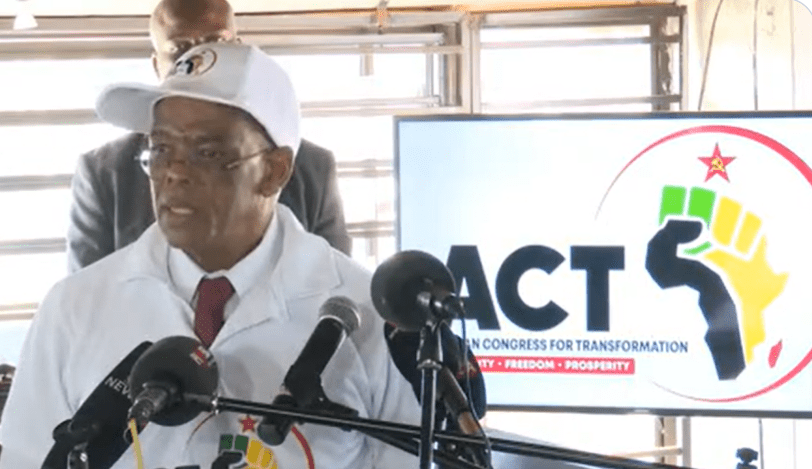Ace Magashule announcing his new political party Photo Kaya 959
South Africa – As elections draw near, a persistent and somewhat intriguing occurrence unfolds: the emergence of new political parties vying for a position on the political platform. This trend has remained consistent over the years. Notably, in 2013, the Economic Freedom Fighters (EFF) was established, followed by the founding of the African Transformation Movement (ATM) and GOOD political parties in 2018. More recently, the African Congress of Transformation (ACT) has entered the scene. All of these parties were established just one year before elections. However, the question arises: why have so many parties been created?
Ousted ANC secretary general, Ace Magashule, made headlines by announcing the formation of his own political party, the ACT. This announcement was accompanied by the recruitment of several individuals to join his cause. However, the launch of ACT was not without controversy. His party’s logo incorporated colours reminiscent of the ANC – green, black, and gold – with hints of the Economic Freedom Fighters’ (EFF) red. He has positioned his party as an alternative to the ANC and accused his former party of abandoning core values and rallying like-minded individuals around the concept of a “party for the politically marginalised.”
The pattern of new parties in South African politics
The emergence of new political parties ahead of national elections is not a new phenomenon in South Africa, explained Professor Sam Koma, Governance Expert. In the 2019 national elections, the Electoral Commission of South Africa reported a record-breaking 48 political parties contesting or registering for the elections. This pattern has become almost customary in the run-up to national elections, and it is set to continue in the forthcoming 2024 national elections. This is all possible due to South Africa’s constitutional democracy being rooted in the principle of a multi-party system, where citizens have the right to form and participate in political parties.
“It is already provided in the Constitution and that’s the reason why we see a number of individuals forming political parties. They are exercising this constitutional right but we know the reality. Elections are very expensive as they require these parties to marshal huge resources as part of galvanising their support base and launching of these political parties and contesting and making it into the ballot.”
While it is a good sign that people are exercising this right, said Koma, it is not a given that they will make it to the National Assembly. Parties like Agang South Africa, African People’s Convention (APC), Black First Land First (BLF) could not make the cut. It is possible that ACT will not make it to the National Assembly.
SMread: Spotlight on hijacked buildings after deadly JHB fire
The challenges of sustaining these parties
Frequently, these emerging parties are propelled by charismatic figures rather than clearly articulated principles or ideologies. Figures who have broken away from other parties because they feel they have been hard done in some way. While this personality-driven strategy might generate initial interest, it often falls short of connecting with a wider electorate who discern the party’s true nature rather than the image it projects to them.
“These are individuals who don’t want to accept the outcomes of a democratic process. Remember how COPE was formed. After they lost in the Polokwane conference, which was part of the governing party, they then decided to form COPE. We can’t have individuals who are not sincere in terms of the formation of these parties but it’s more about registering a personal point or to settle a political score with the previous political party that they were a party to.”
For Koma, ACT is one of these parties. A party formed to settle a political sore. He questioned why Magashule decided to state the party is a “party for the politically marginalised” after he was ousted through a democratic process.
The landscape of South African politics presents a multifaceted picture. While the emergence of new political parties on the eve of the nation’s elections underscores the vitality of its democracy, it also prompts inquiries into the underlying motivations and long-term viability of these entities. As conscientious voters, we wield a pivotal influence in determining the success and influence of these fresh contenders in the political sphere. Ultimately, the onus rests upon us to select leaders endowed with the foresight, ethical fortitude, and resolute determination to tackle the nation’s challenges and steer it toward a more promising future. The destiny of our country hinges on our capacity to scrutinise these parties’ policies critically and assess their competence in governance and effective leadership.
